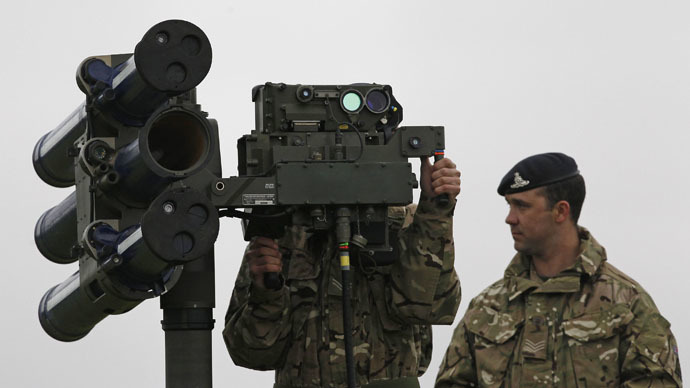Govt deems security risks too low to ‘exempt defense from austerity,’ says think tank

The government believes strategic threats posed to Britain are not serious enough to merit insulating military spending from budget cuts, according to a report by a top defense think-tank.
The paper by the Royal United Services Institute (RUSI) centers on the economics of defense under austerity.
It concludes: “The government is not yet convinced that strategic security risks are high enough to justify an exemption for defense from austerity.”
READ MORE: Battle lines: Defense spending cuts could break the Tories
The findings jar with recent statements by politicians and leading generals on the dangers faced by the UK.
In February, the top British officer in NATO – General Sir Adrian Bradshaw – referred to Russia as an “obvious existential threat to our whole being,” while Prime Minister David Cameron has called the rise of the Islamic State a “mortal threat.”
The investigation also indicates Britain is unlikely to meet the symbolic spending of 2 percent of GDP on defense, expected by NATO in coming years, and that thousands of soldiers could be cut irrespective of who wins the general election this year.
It warns that up to 30,000 service personnel could be axed. Given the Royal Navy may be largely exempt from redundancies, to ensure it can crew Britain’s aircraft carriers, the army could be forced to handle 80 percent of the intended reductions.
READ MORE: ‘Very concerned’: Top US general attacks UK military spending cuts
The report comes at a difficult time for David Cameron who this week faces a rebellion by a number of Tory MP’s over defense cuts.
Last week Bob Stewart, an army colonel turned Tory MP, argued defense is in a “parlous state” and that service chiefs should resign over cuts. He suggested he might step down himself, either as an MP or from the influential Defence Select Committee.
UK allies are also worried. General Raymond Odierno, chief of staff of the US Army, recently told the Telegraph he was “very concerned” at the cuts being made to the UK’s armed forces.
He criticized Chancellor George Osborne’s refusal to confirm whether the UK will meet NATO member states’ spending target of 2 percent of respective national GDP.
“What has changed, though, is the level of capability. In the past we would have a British Army division working alongside an American army division,” he added. Cuts mean the US Army now expects Britain to provide only half its previous commitment.












